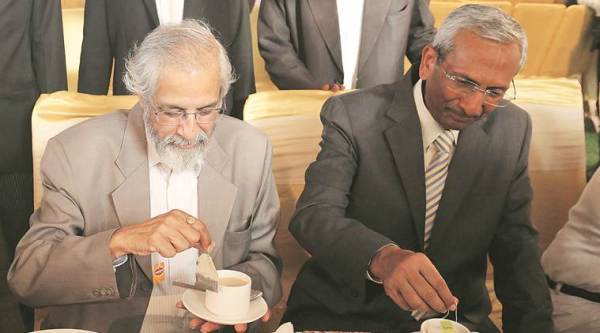 Justice Madan Lokur and A K Goel at the farewell function in New Delhi on Friday. (Express Photo by Anil Sharma)
Justice Madan Lokur and A K Goel at the farewell function in New Delhi on Friday. (Express Photo by Anil Sharma)
Justice A K Goel, who retired from the Supreme Court Friday, referred to the stand taken by Justice H R Khanna — Goel did not name him — on individual rights during the Emergency as he defended his March 20 verdict prohibiting immediate arrest in cases under The Scheduled Castes and Tribes (Prevention of Atrocities) Act, 1989.
Recalling the “imposition of Emergency and suspension of fundamental rights” by Indira Gandhi, Justice Goel, speaking at a farewell organised by the Supreme Court Bar Association, said “this had led to assumption of great arbitrary power by the police and the administrators, unchecked, if I can say so.”
He referred to the view of Justice Khanna who, as part of a five-judge bench, had dissented with the view of the other four that during Emergency a person could not move the court to enforce his right to life and personal liberty under Article 21. He said this was what was on his mind when he pronounced the SC/ST Act verdict.
“Even in such time, when there was arbitrary power, there was one judge of this court and he happened to be from Punjab, who stood for it and he gave an interpretation that whatever the inactive law is, if there is a court, inherently it will do justice and court will see injustice is not done, no arbitrary action is taken, nobody is arrested… It was exactly that thought present in my mind. There is a provision you can’t grant anticipatory bail… But what I held is supposing the person is falsely accused, what is the forum? Should an innocent be allowed to be arrested…,” Justice Goel said.
“I was just a lawyer of one of two years standing at that time (during Emergency). But my experience was that the courts were very justice-oriented even in that atmosphere. And if you (could) show that it is because of Emergency that an innocent person is arrested… straightaway the courts would grant relief. The relief which would not normally be granted would be granted. That was the approach of the courts…,” he said. “Normally we don’t say anything after writing the judgement. But now I am a free man,” he said.
He expressed anguish over India being ranked No. 62 in a ‘Rule of Law Index’ compiled by an American NGO. “My dream is that we become No. 1,” he said.
Pointing to the pendency of cases and lack of judges to adjudicate matters, he said 43 per cent of the pending cases were five years old. “I am not even mentioning the startling figures of cases that are 10 to 20 years old,” he said.